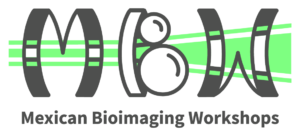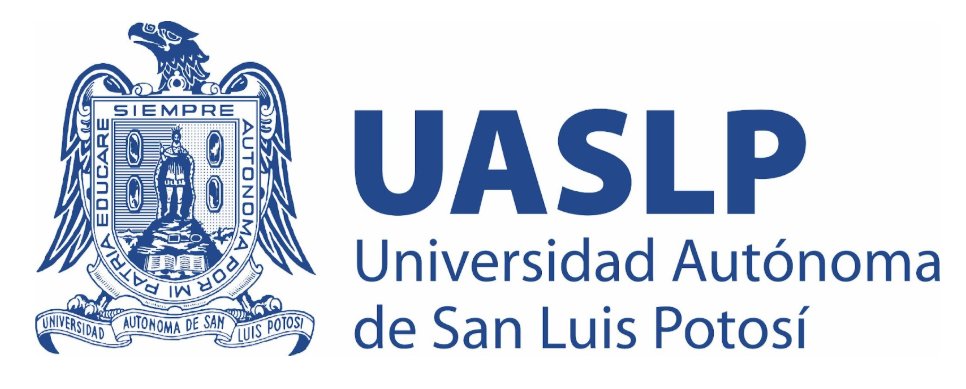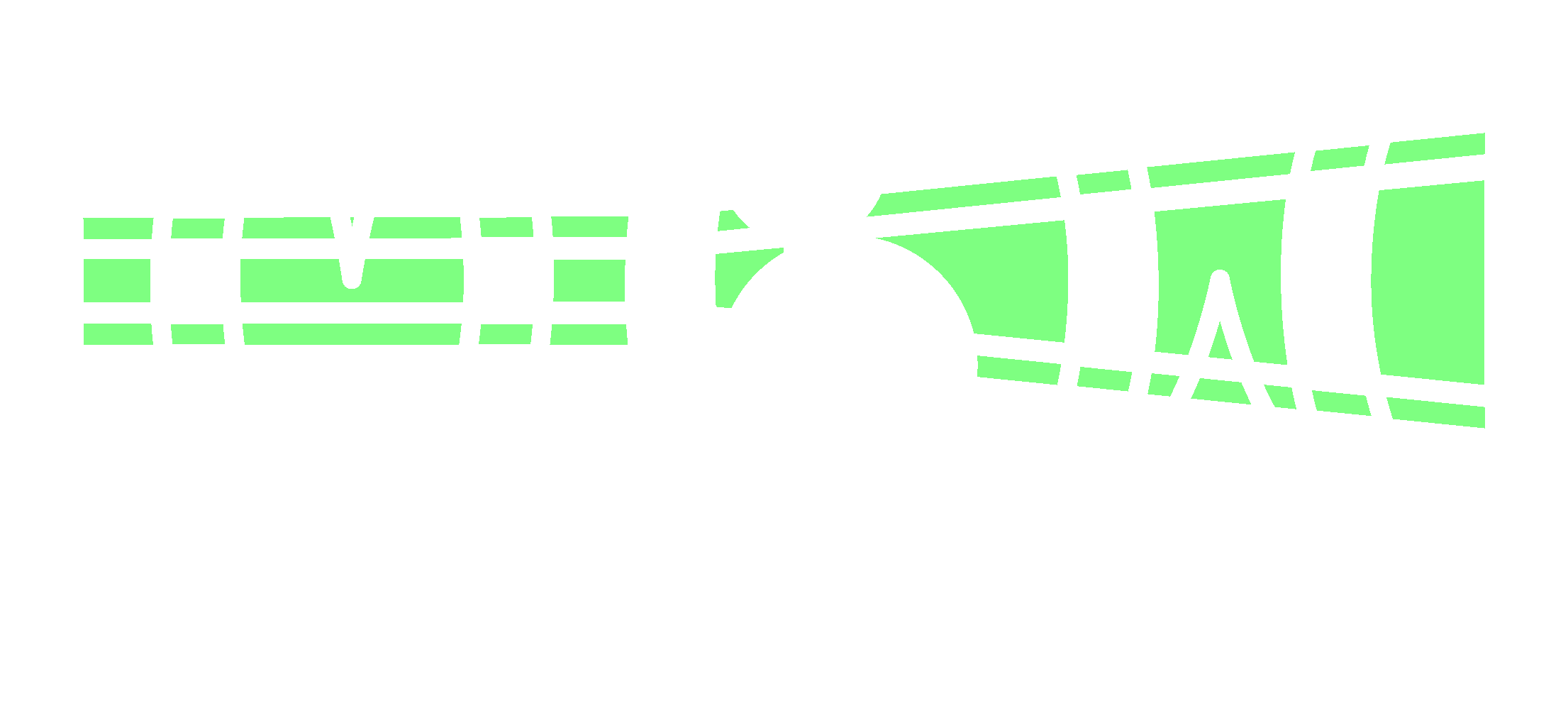






Resumen
El programa Connecting the Mexican Bioimaging Community ha desarrollado, a lo largo de varias ediciones, una serie de talleres orientados a fortalecer las capacidades nacionales en microscopía aplicada al estudio biológico. Cada taller ha abordado distintas etapas del trabajo con muestras biológicas: desde su preparación, adquisición de imágenes mediante técnicas avanzadas como microscopía confocal y electrónica, hasta su análisis e interpretación. Este enfoque integral ha buscado acompañar el ciclo de vida completo de imágenes científicas. Mexican Bioimaging Workshops 11 – Bioimage Analysis: From Fundamental Concepts to Artificial Intelligence representa la última edición de este recorrido formativo, al enfocarse en una etapa crítica y cada vez más relevante: el análisis computacional de imágenes microscópicas, incorporando herramientas de inteligencia artificial (IA) que están transformando la práctica científica y, particularmente, el campo de la microscopía. A través de sesiones teóricas y prácticas, el taller ofrece formación en el uso de herramientas como ImageJ/Fiji, Ilastik, DeepImageJ, Bioimage Model Zoo, Catalyst y TrackMate, así como en conceptos clave como segmentación, anotación, procesamiento por lotes y aprendizaje profundo (incluyendo redes neuronales convolucionales). Estas habilidades permiten a los participantes extraer, cuantificar y analizar información biológica de manera automatizada y reproducible. Además de su componente técnico, MBW11 también incorpora espacios para discutir buenas prácticas y consideraciones éticas en la aplicación de IA al análisis de imágenes biológicas, promoviendo un uso crítico y responsable de estas tecnologías. Este taller concluye con una jornada de divulgación científica abierta al público, reafirmando el compromiso del programa con el acceso abierto al conocimiento y su impacto social. Más allá de su dimensión técnica, MBW11 representa el cierre de un proceso formativo que ha acompañado diversas etapas del trabajo con microscopía biológica, y consolida una comunidad nacional con competencias robustas en análisis de datos, pensamiento interdisciplinario y uso crítico de tecnologías emergentes.
Summary
The Connecting the Mexican Bioimaging Community program has developed, over several editions, a series of workshops aimed at strengthening national capacities in microscopy applied to biological research. Each workshop has addressed different stages of working with biological samples—from sample preparation and image acquisition using advanced techniques such as confocal and electron microscopy, to image processing and interpretation. This comprehensive approach has been designed to support the entire life cycle of scientific imaging. Mexican Bioimaging Workshops 11 – Bioimage Analysis: From Fundamental Concepts to Artificial Intelligence marks the most recent stage of this training journey, focusing on a critical and increasingly relevant phase: the computational analysis of microscopic images, incorporating artificial intelligence (AI) tools that are transforming scientific practice, particularly in the field of microscopy. Through both theoretical and practical sessions, the workshop provides training in the use of software such as ImageJ/Fiji, Ilastik, DeepImageJ, Bioimage Model Zoo, Catalyst, and TrackMate, as well as in key concepts such as segmentation, annotation, batch processing, and deep learning, including convolutional neural networks. These skills enable participants to extract, quantify, and analyze biological information in an automated and reproducible manner. In addition to its technical focus, MBW11 includes opportunities to discuss best practices and ethical considerations regarding the application of AI in the analysis of biological images, encouraging a critical and responsible use of these emerging technologies. The workshop concludes with a public science outreach event, reaffirming the program’s commitment to open access to knowledge and its broader social impact. Beyond its technical dimension, MBW11 represents the culmination of a formative process that has supported multiple stages of work in biological microscopy, and solidifies a national community with strong competencies in data analysis, interdisciplinary thinking, and the critical application of emerging technologies.
Speakers
- Federico Lecumberry (Universidad de la República, Uruguay)
- Francisco de Izaguirre (Universidad de la República, Uruguay)
- Paul Hernández (UASLP)
- Adán Guerrero (LNMA-UNAM)
- Christopher Wood (LNMA-UNAM)
- Diego Delgado (LNMA-CICESE)
Topics: Fundamentals of Bioimage Analysis
Good Morning
Welcome and Participants Introduction
Getting to Know the Participants’ Research
Basic Concepts of Imaging
Fundamentals of Bioimaging, Images, Data Types, Look-up Tables, Calibration, Multiple-channel Images, Contrast Enhancement.
Q&A
Coffee Break
Advanced Concepts of Imaging
Histogram, Contrast and Brightness Adjustment, Filters, Noise Reduction
Q&A
Practical Session: ImageJ/Fiji
Basic Operations, Opening an Image, Changing the Look-up Table, Adjusting Contrast, Identifying the Histogram, Applying Noise Reduction Filters.
Q&A
Lunch
Fundamentals of Segmentation
Segmentation, Threshold, Automatic Threshold, Morphological Operations, Connected Components, Object Measurements (Shape and Intensity) Based on Segmentation (Area, Circularity, Mean Intensity, Minimum, Maximum).
Practical Session: ImageJ/Fiji
Practice on Fundamentals of Segmentation
Practice on Macros and Scripts
Moderator: Paúl Hernández & Federico Lecumberry
Topics: Machine Learning in Bioimaging
Good Morning
Fundamentals of Bioimaging and Machine Learning
Examples of AI Applications in Bioimaging
Definition of AI and Machine Learning
Difference Between Supervised and Unsupervised Learning
Practical Session: Introduction to Ilastik
Description of the Graphic Interface.
Pixel Classification.
Q&A
Coffee Break
Practical Session: Introduction to Ilastik
Description of the Graphic Interface.
Object Classification
Q&A
Practice: Batch Processing in Ilastik and Fiji
Introduction to Batch Processing: Ilastik and Fiji
Fundamentals of Deep Learning, Neural Networks and Convolutional Neural Networks.
Brief Description of the Fundamentals of Deep Learning.
Lunch
Theoretical and Practical Session: Introduction to DeepImageJ
Presentation of the DeepImageJ Plugin for ImageJ/FIJI
Model Execution
Practical session: Bioimage Model Zoo
Webpage Description
Model Execution
Practical Session: Particle Tracking in TrackMate
Moderator:Paúl Hernández & Federico Lecumberry
Topics: Deep Learning and Annotation for Image Analysis
Good Morning
Importance of Image Annotation in Supervised Learning Images
Introduction to Annotation with AnnotatorJ
Practice: Image Annotation with Annotator J
Introduction to Catalyst
Practice: Training an AI Model for Segmentation in Catalyst
Parameter Adjustments
Model Training
Coffee Break
Practice: Training and Application of an AI Model for Segmentation in Catalyst
Model Training
Model Application
AA Softwares and Applications for Bioimaging
DL4MicEverywhere, StarDist, QuPath, Microscopy Image Analyzer, IROSC.
Lunch
Best Practices in the Use of Scientific Images
Q&A
Ethical Aspects of Applying AA, Considerations in Scientific Publications, and Its Relationship with Artificial Intelligence
Q&A
Group Photo
Title
Closing of the 11th Mexican Bioimaging Workshops
Dinner
Moderator: Paúl Hernández
